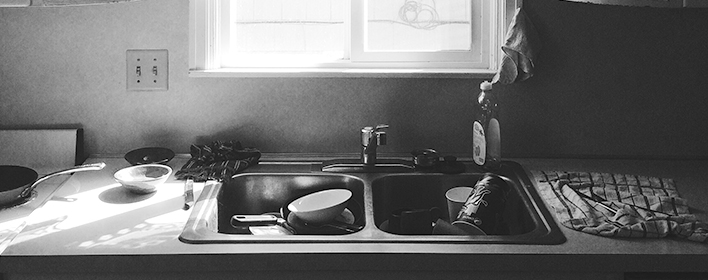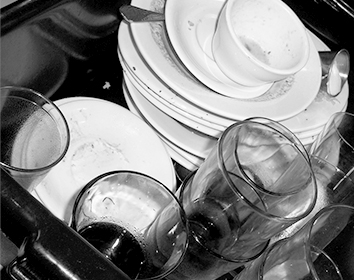
How Important is it to keep the kitchen clean?
Each year in United States there are about four million cases of gastroenteritis due to food poisoning which occurred at home.
Gastroenteritis, commonly called gastro, is an infection or inflammation of the digestive system. Symptoms include vomiting and diarrhoea. The severity can range from feeling uncomfortable to being hospitalised or, in some cases, death.
Research by Initial Hygiene in 2013 found American most kitchens were dirtier than a toilet.

The cost due to medical care and lost work productivity is estimated at $1.3 billion. Safe food-handling skills could have prevented most cases.
You get food poisoning when you consume bacteria in foods that have not been stored, handled or cooked correctly,
In a dirty kitchen, the problem will be if these poorly treated foods come into contact with your food due to the use of dirty utensils or an out-of-control fridge.
Germs get into our homes all the time – on people, food and pets and sometimes through our water supply. It is difficult to know whether there are enough germs to create or cause an infection as it depends on each individual, how contagious the germ is and if the conditions mean it can spread easily.
Dirty dishes in a sink or food scraps left at room temperature are in the danger zone and high risk for harbouring the bacteria that cause food poisoning.
Cleaning is very important as germs do not have anywhere to live once dirt has been removed. You should clean regularly (particularly in high-risk areas), instead of once a week. You should clean areas like the kitchen and bathroom ‘as you go’. You don’t need to clean floors as often as you clean high-risk areas.
Call Us to get a Professional Cleaning
If you are healthy you are not at an increased risk of getting an infection. Depending on your age, you may be slightly at risk. For example, children under five, pregnant women and adults over 65 are more at risk. You are also at increased risk of getting an infection if you have recently been discharged from hospital or you are undergoing medical treatment or taking antibiotics. If a member of the family has an infection, they may risk spreading it to a person who is ‘at risk’. This may happen if a person is discharged from hospital with an infection. They may have a wound infection or bowel infection, and may no longer have symptoms of the illness but could spread infection to a vulnerable family member through the environment or by hand. You need to remember that more and more infections start in this way.
If you are a carer, you should keep your patient’s home clean. The most important surfaces are surfaces that come into contact with hands (for example, door handles, telephones, bedside tables and bed frames. You should clean them with hot water and detergent.
In a busy house, you can’t always keep surfaces that are in contact with hands clean. This is why you need to wash your hands as often as you can to stop germs spreading around the home

The kitchen is a high-risk area for spreading infection. To prevent infection you should do the following:
- Wash your hands before you touch food.
- Clean the dirtiest areas last.
- Keep your fridge temperature between 2 and 4°C.
- Make sure the seal on your fridge door works and the door closes properly.
- Put raw meat at the bottom of your fridge, away from other foods, and always check best-before dates.
- Make sure your dishwasher is working properly.
- Use separate equipment for raw food.
- Do not let wet or damp cloths hang in your kitchen.
- Keep disposable paper towels or microfibre cloths you can put in the washing machine.
- Try not to keep any dirty tea towels in your kitchen. If you have a dishwasher, let it complete its full cycle at 65°C or above.
- Clean up as you do any work.
- Use a non-tainting food sanitizer.
- Clean your kitchen before your bathroom and toilet and use separate cloths
